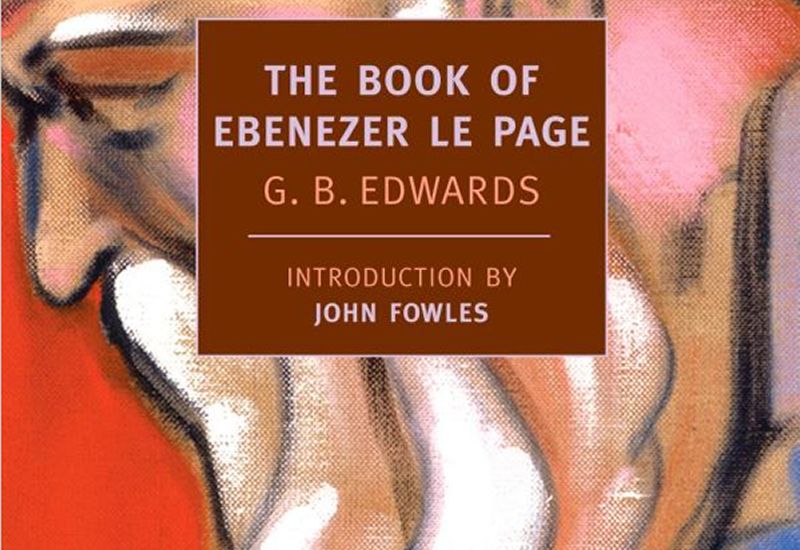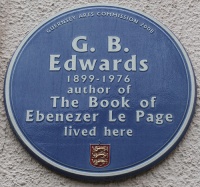

One of Guernsey’s best-loved and most critically acclaimed literary works has reached a milestone.
In 1981, the literary world was introduced to a wonderfully unique character, with the publication of “The Book of Ebenezer Le Page”, by Gerald Basil Edwards.
The novel is a fictionalised autobiography of a typical Guernseyman and since it appeared it has been critically acclaimed and has won the admiration of the people of Guernsey for its accurate portrayal of islanders and the character of island life.
However, it nearly didn’t make it onto bookshelves. The book was rejected by publishers numerous times during Edwards’ lifetime. Following his death in 1976 further attempts were made by Edward Chaney, who had befriended the author in his old age. Finally, one publisher accepted the novel, and Ebenezer’s life has since drawn plaudits from countless authors and critics.

Pictured: Edward Chaney pushed hard for the publication of Ebenezer, as well as writing a biography of his friend who wrote the novel.
William Golding wrote: “This extraordinary book is full of wonderful writing. To read it is not like reading but living.” In his 1981 introduction to the book, John Fowles wrote: “There may have been stranger recent literary events than the book you are about to read, but I rather doubt it.”
The NY Times Book Review called it: “A masterpiece... one of the best novels of our time.” And the Financial Times wrote: “The achievement is so intense and universal that the reader is rendered speechless. G.B. Edwards has succeeded in writing a great novel.”
The book covers Ebenezer’s life, from birth at the end of the nineteenth century to his death in the early 1960s. He never moved away from the Vale, and left Guernsey only once – to travel to watch the Muratti in Jersey. He was a grower and fisherman, and served in the North regiment of the Royal Guernsey Militia.
The narrative introduces us to many of his family and friends, including Ebenezer’s tempestuous relationship with Liza Queripel, who lives at Pleinmont. After many testing times of his life, including the Occupation during the war, Ebenezer bequeaths his autobiography to a young artist he befriends.

Pictured: In 2008, Guernsey’s first blue plaque was affixed to the house where Edwards’ father had lived in the Vale.
The novel was intended to be the first part of a trilogy, entitled Sarnia Cherie: The Book of Ebenezer Le Page. The following books were to be called Le Boud'lo: the Book of Philip Le Moigne and La Gran'-mère du Chimquière: the Book of Jean le Féniant. Before he died, Edwards destroyed a draft of the second part.
Down the years, Ebenezer Le Page has been adapted for a series on Radio 4, as well as for a stage play which premiered in 2002. In both adaptations, the role of Ebenezer was played by Guernsey-born actor Roy Dotrice who also reads the unabridged audiobook of the novel.
Edwards was born in Vale on 8 July 1899, the son of Thomas Edwards, a quarry owner, and his wife Harriet (née Mauger). He served in the Royal Guernsey Light Infantry, then spent four years reading English at the University of Bristol.
In the 1920s and ’30s he was highly regarded as a writer and intellectual of great promise, but he suffered from leaving many major works unfinished, and by 1933 had abandoned his wife and children.
Towards the end of his life he became a semi-recluse and lived as a lodger in a house in Weymouth. It was there he befriended Edward Chaney, who would go on to push for the publication of “Ebenezer”. He also penned a book “Genius Friend” about Edwards.
Pictured top: In the 40 years since its publication, The Book of Ebenezer Le Page has been called "an extraordinary book" and "a great novel".
Comments
Comments on this story express the views of the commentator only, not Bailiwick Publishing. We are unable to guarantee the accuracy of any of those comments.